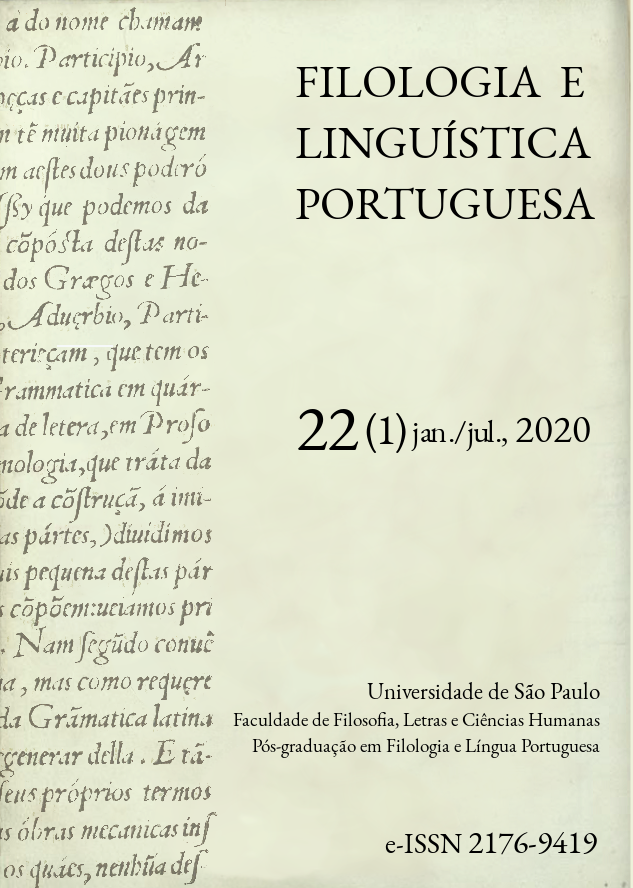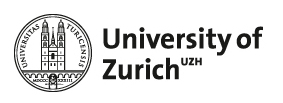Sociolinguistic Variants and posteriorization of voiced fricatives in Alagoas, Brazil
DOI:
https://doi.org/10.11606/issn.2176-9419.v22i1p41-53Keywords:
Nasalization, Posteriorization, SociolinguisticsAbstract
This article analyzes the exchange of some voiced fricatives: labiodental [v], alveolar, [z] and palatal [ʒ] for glottal fricative [ɦ], a process called posteriorization, in the variety spoken in Alagoas. Based on Sociolinguistics, we measure the influence of linguistic factors, basically the posterior phonological context, and extralinguistic factors, such as gender, age, schooling, profession, place of birth and residence, for the occurrence of posteriorization of some voiced fricatives: labiodental [v], alveolar, [z] and palatal [ʒ] for glottal fricative [ɦ] with the aim of establishing a speaker’s sociolinguistic profile who practices this variety in Alagoas. The corpus was comprise of speeches of six informants, three men and three women, as answers to a questionnaire and as readings of texts developed for this research. Discussions of the thus far incipient results show that nasalization influences posteriorization of some voiced fricatives: labiodental [v], alveolar, [z] and palatal [ʒ] for glottal fricative [ɦ], with a greater tendency for this phenomenon to occur in men’s speeches, born and raised in rural areas. Such a study, however, by its pioneering and rather restricted corpus, can serve as a starting point for more comprehensive researches.
Downloads
References
Aprill P. The posteriorization of palato-alveolar fricatives in Quebec French: an effort-based approach. Ottawa Papers in Linguistics. 2007;35:1-24.
Bagno M. Preconceito linguístico. São Paulo: Parábola Editorial; 2015.
Barbosa PA, Madureira S. Manual de fonética acústica experimental. São Paulo: Cortez; 2015.
Bortoni-Ricardo SM. Educação em língua materna: a sociolinguística na sala de aula. São Paulo: Parábola Editorial; 2009.
Bortoni-Ricardo SM. Manual de sociolinguística. São Paulo: Contexto; 2014.
Cagliari LC. Análise fonológica. Campinas: Mercado de Letras; 2002.
Coelho IL, et al. Para conhecer sociolinguística. São Paulo: Contexto; 2015.
Fischer JL. Influências sociais na escolha de variantes linguísticas. In: Fonseca MSV, Neves MF, organizadores. Sociolinguística. Rio de Janeiro: Eldorado; 1974. p. 87-98.
Guy GR. Introdução à análise quantitativa da variação linguística. In: Guy GR, Zilles A. Sociolinguística quantitativa: instrumental de análise. São Paulo: Parábola Editorial; 2007. p. 19-46.
Labov W. Padrões sociolinguísticos. São Paulo: Parábola Editorial; 2008.
Paula AS. O trabalho de campo sociolinguístico. In: Costa JF, Santos RLA, Vitorio EGSLA, organizadores. Variação e mudança linguística no Estado de Alagoas. Maceió: Edufal; 2011. p. 29-42.
Rodrigues AGP, Araujo AA, Aragão MSS. Enfraquecimento de fricativas no atlas linguístico do Ceará: uma abordagem sócio-dialetal. Revista Trama. 2013;9(18):53-64.
Santos RL, Vitorio EGSLA. Teoria da variação e mudança linguística. In: Costa JF, Santos RLA, Vitorio EGSLA, organizadores. Variação e mudança linguística no estado de Alagoas. Maceió: Edufal; 2011. p. 13-28.
Seara IC, Nunes VG, Lazzarotto-Volcão C. Para conhecer fonética e fonologia do português brasileiro. São Paulo: Contexto; 2015.
Silva TC. Fonética e fonologia do português: roteiro de estudos e guia de exercícios. São Paulo: Contexto; 2002.
Tarallo F. A Pesquisa sociolinguística. São Paulo: Ática; 2007.
Downloads
Published
Issue
Section
License
Copyright is transferred to the journal for the online publication, with free access, and for the printing in paper documents. Copyright may be preserved for authors who wish to republish their work in collections.



















